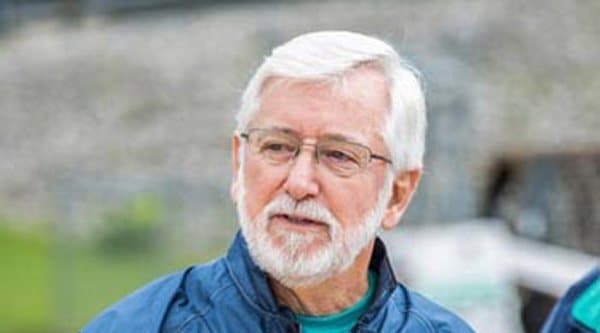Minibytes by Al Allen
By now, if you’ve been reading my previous blogs, you are aware that my opinions, stories and lessons learned usually involve a blend of technology, oil spill experiences, personal stories, and some of my own opinions and expectations. Hang on…, be patient…, and possibly just tolerate my desire to share so much more than just the workings of booms, skimmers, igniters and dispersants. If you are a hard-nosed, nuts-and-bolts kind of person, interested only in mechanical solutions, stop reading…, now! I’m about to share the results of a bed-time story with my youngest son when he was just 7 years old. His “message” for me was profound. It ties into the concept of managing expectations. And, it picks up with the three key solution-based methods of dealing with negative expectations described in my previous blog #10 involving: Integrity, Compassion and Courage.
Rather than just reading children’s books, I often made up stories where we could travel together in a “bubble” that was transparent, impenetrable, and could miniaturize or travel quickly to other galaxies. It was an opportunity to exercise imagination, visualization and creative thinking. The kids loved these stories, and I often threw in a subtle lesson involving the importance of honesty, respect for others, and hard work. It was an atmosphere, I discovered, where they were comfortable asking questions that might have otherwise seemed silly or stupid. Well, one night it wasn’t a question. Rather, it was a conclusion that my son wanted to share with me. It went like this:
“Dad, I’ve been thinking a lot lately about what a soul is, and I think I’ve figured it out”. Hiding my excitement for such a discussion, I calmly replied: “OK, I’d like to hear about that”. Then, working with his hands to illustrate his concept, he said: “Well, it’s sort of like a ball, a bumpy ball — a moving, vibrating bundle of energy. And, it’s made of two things.” I, anxiously awaiting the next statement (a short wait), listened as he quickly and proudly said: “It’s made of love and courage!” For what was probably about 30 seconds (feeling more like 5 minutes to him), I sat in awe. I was moved to the core by what struck me as a most unexpected, profoundly insightful interpretation of what a soul is – from a 2nd grader!
As I sat, trying to find the words for an appropriate response, that wise little man soon blurted out: “Daaaaddd, don’t you want to know why a soul is made of love and courage? Without missing a beat, I replied: “Well, of course”. His next words: “If you think about it, the only thing that really matters in this world is love; but, it takes a lot of courage to show it!” Over the next half-hour we shared many experiences and examples of how love and courage could surely be what we are made of. I was impressed with the fact that he (as much as I) found it difficult at times to remember the importance of love and how to apply it in times of difficulty. His willingness to share feelings involving anger, fear and frustration about school, the behavior of classmates, and even his parents was amazing. The examples he gave were not too unlike some of my own. I could hardly believe the words of wisdom that he was able to share with such honesty and with trust that we could benefit from each other’s experience. The full value of our exchange that night unfolded slowly but firmly in my own world as I grew to experience the challenges of dealing with anger, fear, frustration and “expectations” – my own and those of others.
The significance of that exchange with my son has evolved and proven to be of great help to me through countless difficult situations. There have been times during spill response efforts when I’ve had to work for or with someone who felt his or her ideas were always the best and should never be questioned. That same individual might feel that no one else’s efforts were ever adequate; and, that when a good idea was provided, or a successful mission completed, credit for those contributions would be stolen and never acknowledged. More than once, I have chosen to face such an individual using the notions of integrity and compassion (as described at the end of my last blog #10), finding the courage to present my observations without judgement or blame. If done with a patient and respectful desire to understand the issues or expectations from the other individual’s perspective, I’ve almost always experienced a rewarding and vastly improved relationship. The goal, I’ve found, is not to manage the expectations of an individual or group, but to understand their expectations, and work toward the highest “good” for everyone involved.
Over the years, some of the most satisfying efforts to understand expectation involved my travels to dozens of villages throughout the Arctic regions of Alaska and Canada. During most of those visits, traveling with oil company and/or agency representatives, my role was to explain the nature and impacts of oil spills and the technology available for cleaning them up. Offshore drilling was and still is a sensitive topic among the indigenous communities of Alaska and Canada. For the first few of nearly 30 years I spent visiting those communities, the anger and mistrust toward our intentions for visiting was sometimes obvious and intense. We found that it was important to stay longer at each location, to meet in smaller groups, and to listen to their concerns with patience and compassion. While the information we provided was helpful, it was far more important to listen and respond to the feelings and the heartfelt expectations of all who lived in those communities. As suggested earlier, some expectations can’t really be managed…, just better understood. I’ve come a long way in better understanding and appreciating why the residents of these villages refer to the waters in which drilling may occur as their “Garden”. It is critical that we all, regardless of our title or affiliation, have the integrity, compassion and courage to balance the risks and benefits of our decisions for everyone that could be impacted by those decisions.
By now, you are already realizing how these virtues of integrity, compassion and courage also help when facing the challenges of marriage and golf. In marriage, we share a path with someone we love deeply, however that path can get steep, bumpy, or a bit foggy. We may blame our partner and jump to conclusions at times regarding his or her intentions. I’ve learned, though I am far from “graduation”, that the slope, bumps and fog of the marital path are rarely, if ever, the results of intentions to create discord in the relationship. The problems are usually caused by misunderstandings or just careless behavior. By sitting down, facing each other, turning off the TV and iPhones, and listening to each other’s feelings and expectations, the “hurts” can often be soothed, conflict possibly avoided, and the path toward a harmonious resolution achieved. Decades of marriage tend to humble one’s expectations for a desired positive outcome every time. Hmmm, seems like a good segue toward expectations in golf………., besides that, my wife seems to be quietly and slowly walking behind me a lot as I attempt to complete this blog.
Golf! What a game. One in which it is as difficult to manage one’s expectations as it is to manage the path of a little ball over hundreds of yards into a hole in the ground not much bigger than a coffee mug. From the very first swings of a golf club it is usually felt that controlling the path of a golf ball is nearly impossible. From then on, one spends countless hours and gobs of money simply confirming that belief. The success one has in managing expectation during the effort to improve one’s golf game determines the duration of one’s life as a golfer. Simply put, regardless of the quality of your game, you will often experience moments of excitement and pride that are quickly shattered by the most embarrassing destruction of any hope you had for consistent improvement. To stay the course, so to speak, the expectation for improvement is essential; however, it must be matched by a commitment to seek instruction, watch the performance of professionals, and practice frequently at the range and putting greens. Be honest about your own skills and limitations; be passionate in your drive to improve; and, have courage that persistent hard work will pay off – it really is just a game. Have fun!
As I look back on some of the lessons I’ve learned about expectation management in my career, marriage and time on the golf course, I’d say:
1. With others, it is not so much the “management”, but the “understanding” of their expectations.
2.
With self, management of expectation is possible, being willing to modify one’s words, actions and commitments, as appropriate, for the highest good of all.
3. With troublesome issues involving projects, people, marriage, golf or whatever, be constantly mindful of the importance of Integrity, Compassion and Courage.

Alan A. Allen has over five decades of experience as a technical advisor and field supervisor involving hundreds of oil spills around the world. Al is recognized as a leading consultant and trainer involving oil spill surveillance and spotting techniques, the application of chemical dispersants, and the containment, recovery and/or combustion of spilled oil under arctic and sub-arctic conditions.
Copyright© 2018, Al Allen. Unauthorized use and/or duplication of this material without express and written permission from this blog’s author is prohibited.

